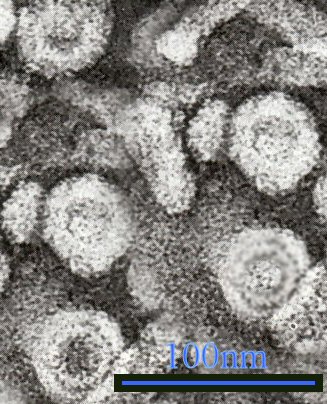J Clin Oncol. 2012; 30(6):623-30 (ISSN: 1527-7755)
Tsan YT; Lee CH; Wang JD; Chen PC
Institute of Occupational Medicine and Industrial Hygiene, National Taiwan University College of Public Health, 17 Syujhou Rd, Taipei 10055, Taiwan; pchen@ntu.edu.tw.
Institute of Occupational Medicine and Industrial Hygiene, National Taiwan University College of Public Health, 17 Syujhou Rd, Taipei 10055, Taiwan; pchen@ntu.edu.tw.
PURPOSE Statins have potential protective effects against cancers, but no studies have focused on patients with chronic hepatitis B virus (HBV) infection. The purpose of this study was to investigate the association between the use of statins in HBV-infected patients and the risk of hepatocellular carcinoma (HCC). PATIENTS AND METHODS We conducted a population-based cohort study from the Taiwan National Health Insurance Research Database. A total of 33,413 HBV-infected patients were included as the study cohort. Each patient was individually tracked from 1997 to 2008 to identify incident cases of HCC since 1999. Subsequent use of statin, other lipid-lowering agents, aspirin, and angiotensin-converting enzyme inhibitors was identified. Cox proportional hazards regression was used to calculate the hazard ratios (HRs) and 95% CIs for the association between the use of statins and the occurrence of HCC in the HBV-infected cohort. Results There were 1,021 HCCs in the HBV cohort during the follow-up period of 328,946 person-years; the overall incidence rate was 310.4 HCCs per 100,000 person-years. There was a dose-response relationship between statin use and the risk of HCC in the HBV cohort. The adjusted HRs were 0.66 (95% CI, 0.44 to 0.99), 0.41 (95% CI, 0.27 to 0.61), and 0.34 (95% CI, 0.18 to 0.67) for statin use of 28 to 90, 91 to 365, and more than 365 cumulative defined daily doses (cDDDs), respectively, relative to no statin use (< 28 cDDDs). CONCLUSION Statin use may reduce the risk for HCC in HBV-infected patients in a dose-dependent manner. Further mechanistic research is needed.
文章標籤
全站熱搜






 留言列表
留言列表
 線上藥物查詢
線上藥物查詢 